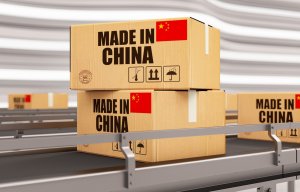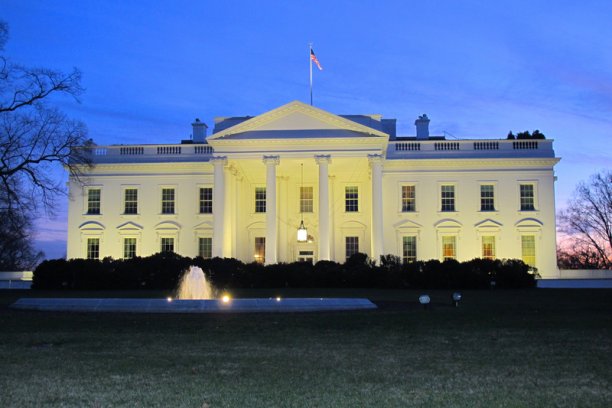
On-and-off US tariffs cause chaos
Sudden increase could result in exporters ending up with warehouses full of unsold items.

6th August 2025
Innovation in Textiles
|
United Kingdom
America’s $800 de minimis limit is set to be scrapped at the end of this month – two years earlier than previously announced.
The unexpected acceleration of the axing of the USA’s de minimis import threshold is likely to have a substantial impact on exporters of ‘low-value’ goods to the US, warns the international delivery expert Parcelhero.
Sellers were already preparing for the worst, as the scrapping of America’s de minimis limit was originally announced in President Trump’s One Big Beautiful Bill Act (OBBBA) last month. However, that legislation stated that the de minimis tariff exemptions would not be repealed until 1 July, 2027. The White House has now announced that President Trump is acting more quickly to suspend the de minimis exemption than the OBBBA requires.
“Many UK-based exporters of products valued at $800 and under will be taken by surprise by the change,” says David Jinks, Parcelhero’s head of consumer research. “So-called low-value packages will now be subject to the same country-specific tariffs as larger shipments. The sudden increase in the cost of British goods to US consumers could result in UK exporters ending up with warehouses full of unsold items. The only alternative is to absorb the new charges themselves, rather than pass them on to their US customers.”
Potential impact
To give an idea of the scale of the potential impact, in the four quarters leading to the end of March 2025, the UK exported goods woth £61.4 billion to the US. While this total includes expensive products such as cars, it also includes millions of pounds worth of goods valued at $800 or less, which are about to be clobbered by tariffs for the first time.
Last year, for example the UK exported apparel worth $138.87 million and most of these products will have had a value of under $800. From the end of this month, these goods will all face new tariffs.
The UK is one of the few countries to have reached a trade deal with the US and the terms are reasonably favourable compared to the tariffs many other nations face. Under the terms of the deal, UK-produced goods now attract a 10% tariff when they arrive in the US whereas, currently, Brazil is facing tariffs of up to 50%. Good deal or not, however, the fact is that all lower-priced UK-produced goods will potentially cost US shoppers more from August 29th than they pay today.
The new Executive Order states: “The duty-free de minimis exemption shall no longer apply to any shipment of articles regardless of value, country of origin, mode of transportation, or method of entry. Accordingly, all such shipments shall be subject to all applicable duties, taxes, fees, exactions and charges.
At the very least, this means that if the UK’s trade deal rate of 10% is applied, a UK-made coat costing $800, for example, will cost US shoppers an extra $80, which could make all the difference between whether they purchase a UK-made product or one manufactured in the US. That may not be the only applicable tariff, however, as it could also attract a further tax depending on the item’s tariff code.
Blanket duty
Parcelhero is also concerned that, at least initially, a potential blanket $80 duty might be applied to every package of $800 or less arriving in the US from the UK by post. That’s because the new Executive Order’s small print states that packages shipped through the “international postal system” will face Either a duty equal to the tariff rate applicable to the country of origin of the product (which in the UK’s case would be 10% of the package’s value) or a “specific” duty ranging from $80 to $200 per package.
This “specific” duty could mean a tariff of $80 will be slapped on all packages sent by international mail from the UK, regardless of whether they are worth $1 or $800. That’s because a specific tariff of $80 is being applied to all parcels arriving by international post for all countries whose tariff rate is under 16% (a category which includes the UK).
This $80 fee could actually be a lot worse. A blanket $160 will be charged on packages arriving by post if the tariff rate of the country it originates from is between 16-25%, and $200 if the tariff rate of the country the package is posted from is above 25%.
When the de minimis limit was first cancelled for goods from China back in February, it resulted in US Customs chaos, the suspension of USPS deliveries of all packages from China and significant backlogs at airport cargo facilities. This blanket duty rate is presumably a way to avoid a similar logjam at the end of August as parcels will only face a specific duty based on the country they were mailed from.
“The good news is that Parcelhero has identified two ways senders can bypass some of the worst impacts of the ending of the de minimis limit,” says Jinks. “The first is to use an international courier service, rather than traditional postal services such as the Post Office. Using a courier bypasses the “international postal system” blanket $80 specific duty.
“Our second hack applies particularly to individual senders, rather than businesses. American citizens can continue to receive bona fide gifts valued at $100 or less duty-free. So, providing a UK-shipped parcel’s documentation specifies the item is a gift and is worth less than the $100 limit, it will escape all new tariffs.
“One final piece of advice applies particularly to overseas traders considering exporting to the US via the UK, in order to qualify for the UK’s preferential tariff rate. Don’t try it! All goods that are considered to have been trans-shipped to avoid applicable duties will face a punitive 40% tariff.”

Business intelligence for the fibre, textiles and apparel industries: technologies, innovations, markets, investments, trade policy, sourcing, strategy...
Find out more